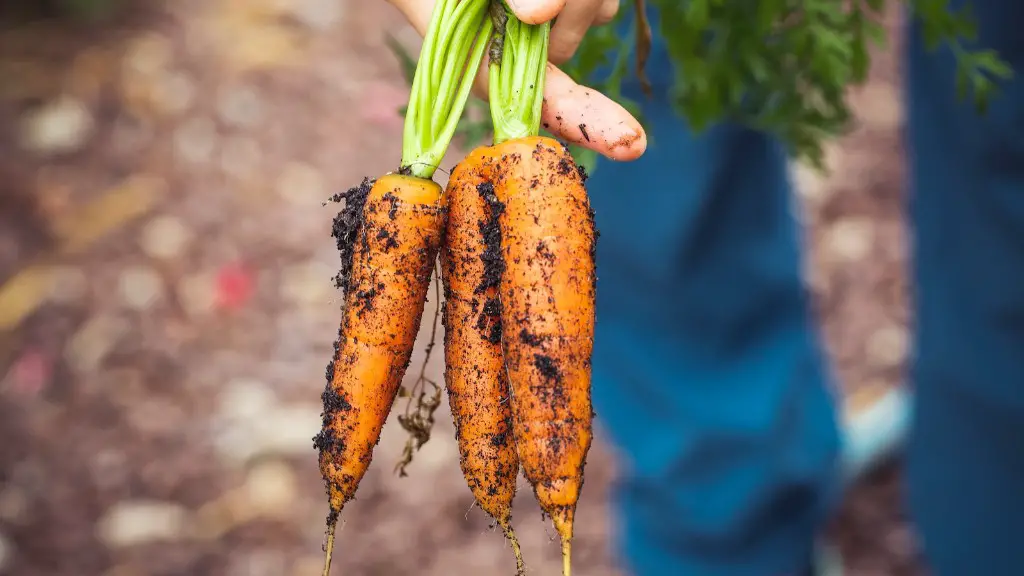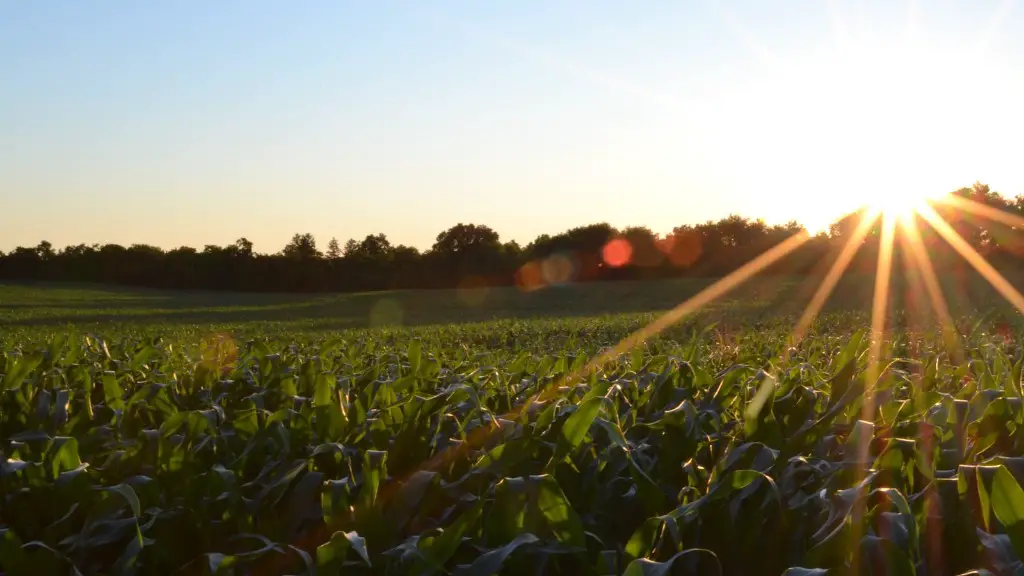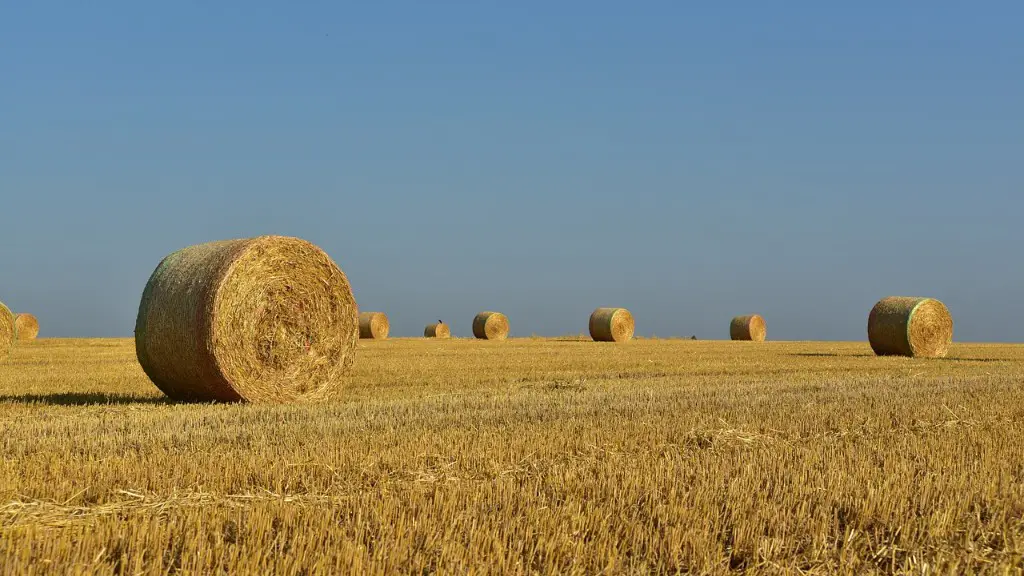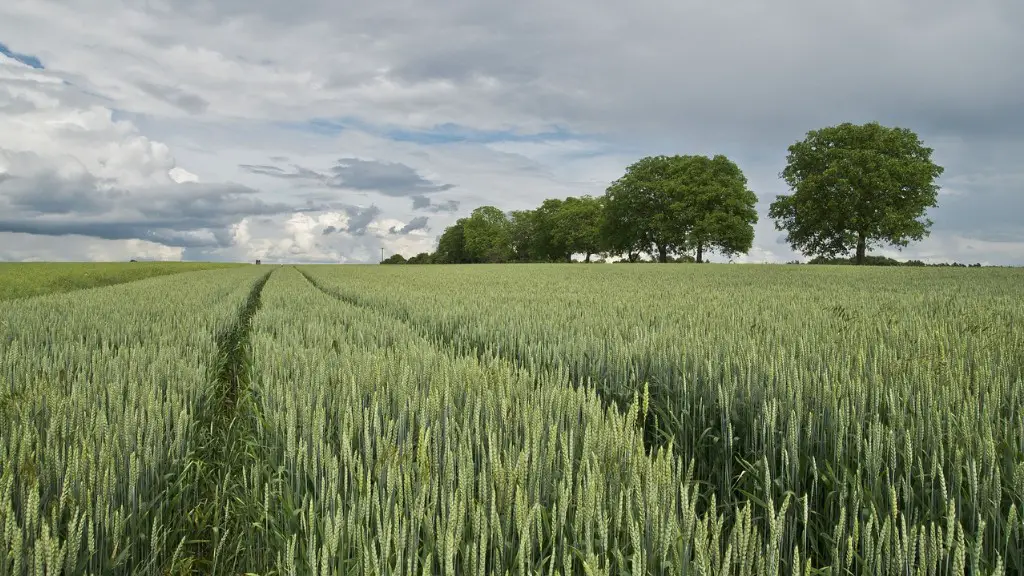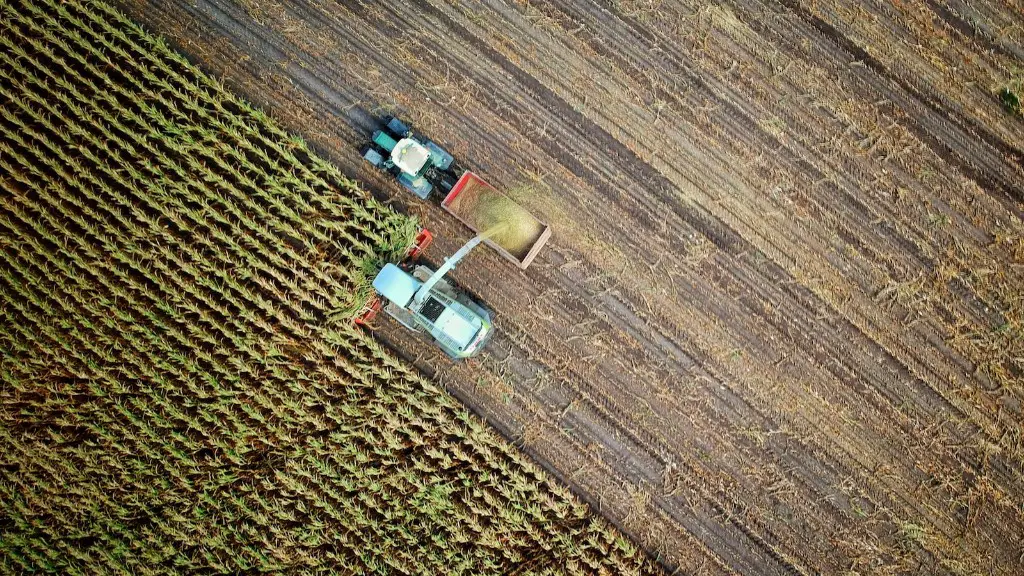Plantation agriculture is a type of farming where a single crop is grown on large tracts of land. Plantation crops are typically grown for commercial purposes, such as for sale or export. Plantation agriculture is intensive and requires large amounts of land, labor, and capital. It is also highly specialized, with farmers typically growing only one or two crops.
Plantation agriculture is a type of farming in which crops are grown on a large scale, usually for commercial purposes. Examples of crops that are typically grown on plantations include coffee, cocoa, sugarcane, and tobacco.
What was plantation agriculture?
Plantation agriculture is a type of commercial farming where a single company or government owns an area of land that is cleared for farming. This type of farming is typically done on a large scale and employs labourers to work on the plantation.
Plantation agriculture is a type of farming where crops are grown on a large piece of land. This type of agriculture is most common in tropical climates where the conditions are more suitable for growing cash crops. Plantation agriculture can be very profitable, but it can also be very damaging to the environment.
What do you mean by plantation farming Class 8
Plantation farming is a type of agriculture where a large piece of forest land is cleared and crops are planted in large numbers. This type of farming requires small inputs of labor, fertilizers and capital relative to the land area being farmed. Plantation farming is a more efficient way of producing crops and can be more profitable for farmers.
Plantations are a type of commercial farming where a single crop of tea, coffee, sugarcane, cashew, rubber, banana or cotton is grown. Plantations are usually large estates that are owned by companies or wealthy individuals. Plantations were first established in the Americas in the 16th century, but they are now found in many countries around the world.
Where is plantation agriculture?
The climate in the south was ideal for farming, with mild winters and hot, humid summers that allowed crops to be grown year-round. The fertile soil of the region was well-suited to plantation farming, and crops with longer harvest periods were particularly efficient to grow on plantations.
This type of farming is typically seen in countries with large amounts of arable land and cheap labor. The scientific methods of cultivation and large estates or plantations help to maximize crop yield, while the managerial and technical support ensure that the operation runs smoothly. This type of farming typically specializes in a single crop, such as wheat or corn, in order to maximize efficiency and profits. Finally, a good system of transportation is essential in order to get the crop to market.
What is plantation agriculture quizlet?
Plantation farming is a type of large-scale agriculture that is typically found in tropical and subtropical climates. These farms specialize in the production of one or two crops for sale, usually to a MDC. Plantation farming is typically very labor-intensive, and often relies on migrant or seasonal workers to maintain production. Some of the most common crops grown on plantations include coffee, tea, sugarcane, and tobacco.
The plantations in India are largely concentrated in the states of Kerala, Tamil Nadu, Karnataka, Andhra Pradesh, and Maharashtra. These crops are grown in the tropical and sub-tropical regions of the country and are an important source of foreign exchange for India. The production of these crops is also labour-intensive and provides employment to a large number of people in the rural areas.
What is plantation agriculture give two examples Class 8
Plantation agriculture is a commercial farming system in which crops are grown on a large scale, usually with the help of a lot of labor and capital. The crops grown in plantations are typically cash crops that are harvested and then processed into finished goods before being sold. Common plantation crops include tea, coffee, sugarcane, cashew, rubber, banana, and cotton.
Plantation agriculture is important for many reasons. It generates government income through charges and different duties, provides foreign trade to the economy, and encourages agricultural development and research. Additionally, plantation agriculture can increase modern development by arranging unrefined substances, mainly agro-based businesses.
What is plantation farming also called?
Plantation agriculture is an extensive type of agriculture where the large size of the farm is utilized to grow a single crop which is even known as monoculture. This type of farming is mostly found in the tropical and subtropical countries where the climate is suitable for the cultivation of crops like coffee, tea, rubber, sugarcane, cotton, chocolate, etc. The key advantage of plantation agriculture is that it enables the farmers to grow a large quantity of a single crop which can be easily sold in the market. However, the downside of plantation agriculture is that it is detrimental to the environment and also causes economic dependence of the farmers on a single crop.
A signal crop is a crop that is grown over a large area and is capital intensive. It is done with migrant labour and all produce is used as raw material in industries such as tea coffee rubber sugarcane banana etc. The plantation has an interface of agriculture and industry both.
What were the three main plantation crops
The crops grown in plantations vary depending on the climate and geographical location. However, some of the most common crops grown in plantations are coffee, tea, sugarcane, cashew, rubber, banana, and cotton. These crops are typically grown for their commercial value and are harvested on a large scale.
The plantation system was first started in the Caribbean islands by the Spaniards in the early 16th century. This system was based on slave labor and it was marked by inhumane methods of exploitation. The slaves were forced to work in the plantations and they were subjected to severe conditions. They were not given proper food or shelter and they were often beaten by the plantation owners. This system led to the suffering and death of many slaves.
Who introduced plantation agriculture?
The BritishPlantation agriculture was introduced in India by the British in the 19th century. This type of agriculture involves growing and processing of a single cash crop purely meant for sale. The main crops grown under this system were coffee, tea, sugarcane, cotton and indigo. This type of agriculture led to the development of large plantations which were owned and managed by the British. The local people were employed on these plantations as workers. This type of agriculture was beneficial for the British as it helped them to earn large profits. However, it was detrimental for the local people as they were paid very low wages and were required to work for long hours.
These crops are important for the economy as they are grown to cater to the needs of the market. They provide employment for many people and generate income for the country.
What are the effects of plantation agriculture
On the environmental front, unsustainable plantation growth is often accused of causing increased emissions of greenhouse gases (GHGs), loss of biodiversity, water cycle destabilization, soil erosion, nutrient loss as well as land and water pollution (Zapfack et al., 2002). All of these impacts have serious implications for climate change, food security and the environment.
Single crop farming is a type of agriculture where a single crop is grown on a large area of land. The main purpose of growing crops in this manner is for the market, as it is both labour intensive and capital intensive. There is also an interface of agriculture and industry in this type of farming, as crops are usually grown to be sold to companies or processed into other products.
Conclusion
Plantation agriculture is a type of agriculture in which crops are grown on a large scale, often for commercial purposes. Plantations are usually large tracts of land with a uniform climate and soil type, and are often located in tropical or subtropical areas.
Plantation agriculture is a type of farming in which crops are grown on a large scale, typically for commercial purposes. Plantations are usually large tracts of land with a uniform climate and soil type, and are often located in tropical or subtropical areas. Plantation agriculture typically requires large amounts of capital investment and labor, and is often associated with large-scale monoculture production.
